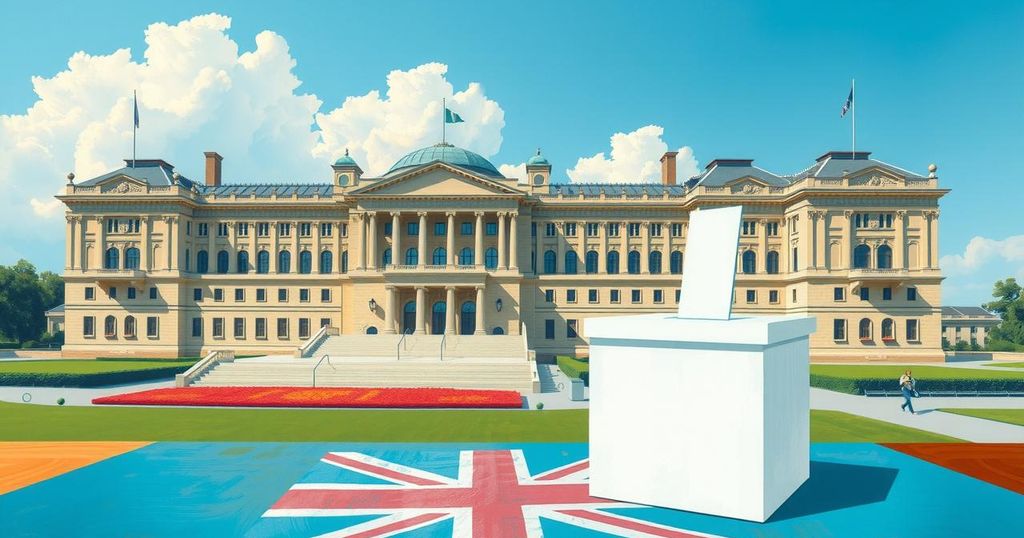Politics
ANDREI KHALIP, BRAZIL, CHEGA, COALITION GOVERNMENT, DEMONSTRATIONS, ELECTIONS, EUROPE, EUROPEAN UNION, LUIS MONTENEGRO, MARCELO REBELO DE SOUSA, MONTENEGRO, NATIONAL ASSEMBLY, OPPOSITION, PORTUGAL, REUTERS, SERGIO GONCALVES, SOCIAL DEMOCRATIC, SOCIALIST, SOUTH AMERICA, THOMSON REUTERS
Jamal Walker
0 Comments
Portugal’s President Disbands Parliament, Sets Date for Early Election on May 18
Portugal’s President Marcelo Rebelo de Sousa announced early parliamentary elections on May 18, following a confidence vote loss by the minority government. The caretaker government will remain until a new parliament is established. Prime Minister Luis Montenegro faces scrutiny over potential conflicts of interest. Polls indicate tight competition between the Socialists and Montenegro’s alliance, while voter trust in the government appears to wane, prompting concerns about political stability.
Portugal is poised to conduct an early parliamentary election on May 18, as announced by President Marcelo Rebelo de Sousa. This decision comes on the heels of the recent loss of parliamentary confidence by the centre-right minority government, marking the third election in over three years. Following consultations with leading political parties and his advisory Council of State, the president concluded that disbanding parliament was necessary.
In the interim, the government has adopted a caretaker role until a new parliament is established. Prime Minister Luis Montenegro initiated the confidence motion after opposition parties threatened a parliamentary inquiry related to his family’s consultancy dealings. Montenegro has firmly denied any conflicts of interest or ethical breaches, although prosecutors are actively reviewing some allegations without an ongoing investigation.
Montenegro’s party has pledged support for him in the upcoming election, attributing the crisis to opposition actions. However, many political analysts suggest that Montenegro’s leadership is primarily to blame for the current turmoil, with opinion polls indicating a significant decline in voter trust. Recent surveys suggest that the opposition Socialists might hold a slight edge over Montenegro’s alliance, although results remain largely unchanged from the last election, indicating persistent political instability.
The far-right Chega party currently polls in third place but has dipped below its previous year’s results, largely due to scandals amongst its senior members. Despite the recent political tumult, Portugal’s economy continues to thrive compared to other EU nations, marked by budget surpluses and reduced debt levels, with minimal concern regarding performance as a result of impending elections.
Frustration amongst voters over continuous elections without achieving governmental stability is expected to lead to higher abstention rates in the upcoming ballot. The previous election saw a record turnout, which analysts attribute to a surge of nearly 900,000 new voters supporting anti-establishment sentiments.
In conclusion, Portugal’s early parliamentary elections on May 18 are the result of a confidence vote loss by the sitting government, prompting the president to disband parliament. Prime Minister Luis Montenegro remains at the helm of the Social Democratic Party, despite a decline in voter trust. With polls indicating tight competition with the opposition Socialists and ongoing challenges within the far-right Chega party, the election raises concerns about continued political instability. Voter frustration may influence turnout, further complicating the political landscape at this juncture.
Original Source: www.usnews.com




Post Comment